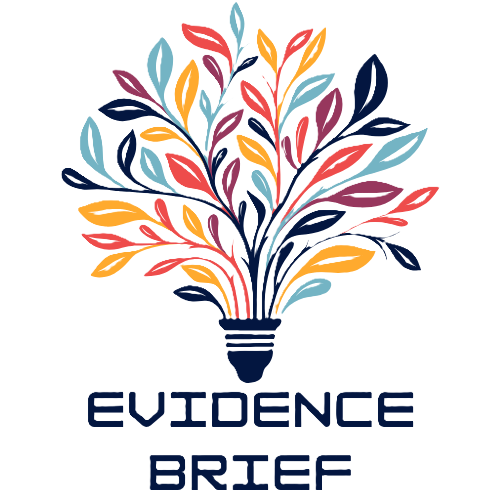In today’s fast-paced world, keeping skills sharp is as crucial as keeping your morning coffee strong. Professional development isn’t just a buzzword tossed around in corporate meetings; it’s the secret sauce to career growth and satisfaction. Imagine trying to navigate a maze without a map—frustrating, right? That’s what it’s like without ongoing learning in a rapidly changing job market.
Why Is Professional Development Important
Professional development fosters necessary skills and knowledge. It equips individuals with tools to adapt to changing job requirements. Continuous learning addresses evolving industry demands and enhances career prospects. Organizations benefit specifically from a workforce that remains competitive and innovative.
Training opportunities play a vital role in professional growth. Workshops, online courses, and certifications offer practical experiences that build expertise. Networking events create connections that can lead to mentorship and collaborations. Each of these elements contributes to a robust professional identity.
Engagement in professional development leads to increased job satisfaction. Workers feel valued and motivated when provided with growth opportunities. Investment in employee development results in higher retention rates, saving organizations recruitment costs. Companies also benefit from a more skilled workforce that drives business success.
Setting goals remains crucial to effective professional development. Individuals should identify specific areas for improvement aligned with career aspirations. Regularly assessing progress creates accountability and encourages continued learning.
Ultimately, professional development empowers individuals to navigate their careers proactively. It creates pathways to advancement and enhances adaptability in an ever-changing job landscape. By prioritizing continuous learning, professionals position themselves for long-term success and fulfillment in their work environments.
Benefits of Professional Development

Professional development offers various advantages that contribute significantly to individual careers and organizational success. Enhanced skills lead to empowered professionals, positioning them to excel in their roles.
Enhanced Skills and Knowledge
Continuous professional development strengthens skill sets and broadens knowledge bases. Individuals gain access to valuable training opportunities, such as workshops or online courses, that equip them with the latest industry best practices. Knowledge acquired through these methods leads to improved performance and adaptability. Employees empowered with new skills are better prepared to take on challenges and complex tasks in their field. Organizations benefit from a workforce that remains ahead of industry trends, driving innovation and efficiency.
Increased Job Satisfaction
Engaging in professional development fosters a sense of value among employees. Motivated individuals often experience higher job satisfaction due to accessible growth opportunities. Career advancement becomes a tangible goal, creating a more engaged and loyal workforce. Employees who participate in training programs feel appreciated, leading to increased motivation and productivity. As job satisfaction rises, organizations see enhanced employee retention rates, resulting in better performance outcomes and a stronger company culture.
Impact on Career Growth
Professional development significantly influences career advancement and satisfaction. Continuous learning equips individuals with critical skills for the evolving job market.
Promotions and Opportunities
Promotions often follow enhanced skills and competencies. Employees who engage in professional development frequently find themselves in better positions to achieve upward mobility. Organizations value individuals committed to their growth, leading to increased visibility and recognition. Numerous training programs or certifications present pathways to new roles, enhancing career trajectories. Individuals demonstrating initiative generally gain access to leadership opportunities. Gaining additional qualifications builds confidence, driving employees to pursue and qualify for promotions.
Networking and Connections
Networking plays a crucial role in career growth. By attending workshops or conferences, individuals build connections with industry leaders and peers. Networking opportunities often lead to mentorship relationships that foster professional guidance. Strong connections frequently result in job offers, collaborations, or referrals. Relationships established during professional development events expand professional circles and provide insights on industry trends. Engaging with a diverse network enhances visibility, positioning individuals favorably within their fields.
Professional Development Strategies
Professional development encompasses various strategies that empower individuals to enhance their skills and advance their careers. Workshops and seminars, along with online courses and resources, play crucial roles in this continuous learning journey.
Workshops and Seminars
Workshops and seminars offer hands-on experiences that facilitate skill enhancement. Participants engage directly with instructors and peers, enabling collaborative learning and immediate feedback. These events often focus on specific industry trends, providing insights that help professionals stay relevant. Networking opportunities arise during these gatherings, fostering relationships that can lead to mentorship and career advancement. Engaging in a workshop or seminar not only aids in skill development but also motivates individuals by showcasing real-world applications of their learning.
Online Courses and Resources
Online courses and resources present flexible options for professional development. Individuals can choose from numerous platforms that cater to various interests and expertise levels. Many courses feature video lectures, quizzes, and interactive content, making learning engaging. Employers often encourage participation in online courses to equip staff with new competencies relevant to their roles. By accessing these resources, professionals manage their learning pace and tailor their education to fit personal goals. Benefits include enhanced job performance and increased adaptability to evolving industry demands.
Conclusion
Professional development is a vital investment in one’s career journey. It not only equips individuals with essential skills but also fosters a culture of continuous learning and adaptability. By actively engaging in training and networking opportunities, professionals enhance their job satisfaction and position themselves for future advancements.
Organizations that promote professional growth benefit from a more skilled and motivated workforce, leading to increased retention and overall success. Prioritizing professional development is not just about keeping pace with industry changes; it’s about empowering individuals to take charge of their careers and thrive in an ever-evolving job market.

